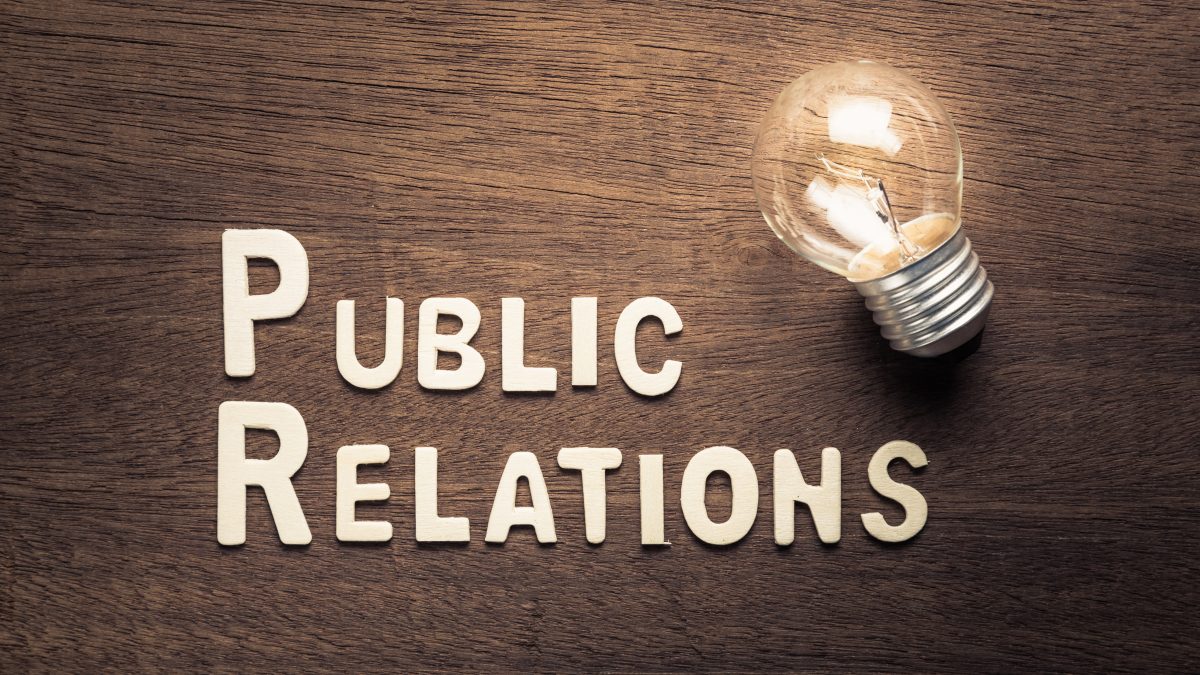
Oh, for the days of proper greengrocers
23rd November 2020
Independent floristry training school launched Christmas campaign to save England’s endangered species
27th November 2020For many businesses unfamiliar with the power of Public Relations (PR), it is often treated as ‘a nice to have’ way of promotion, opposed to an integral part of their communications strategy. It is, however, so much more than a well-drilled press office; it exists to influence, and effect change in your target market. When you get that great news story published in the press think of PR as a personal recommendation from the editor.
Looking for the most effective way of developing brand identity and garnering loyalty, then PR can make it happen. It is seen as independent and therefore more effective against paid advertising alone. In fact, out of all the communications disciplines, the PR industry is unrivalled in its ability to craft persuasive and compelling narratives – one of the most important ways to connect with your audience.
PR Rocks as endorsed by a quote from world-renowned entrepreneur and businessman Bill Gates: “If I was down to my last dollar, I would spend it on PR.”
How PR can help you:
Promote your brand’s values
We are in an era where more and more people are conscientious about putting their money and loyalty into brands with clear values and ethos similar to their own. It has never been more important for businesses to uphold an excellent and sustainable reputation with a high level of trust. That’s why PR is an indispensable and necessary tool to build, maintain and manage the company’s brand.
A successful PR strategy uses a variety of methods such as thought leadership pieces, influencer connections and networking strategies to promote a client’s agenda and spread positive messages to their target audience.
Build credibility
There is no better way to build and protect credibility than by achieving a third-party endorsement – a fundamental part of successful PR. According to a 2014 study by Nielson, a leading global information & measurement company, PR is almost 90% more effective than advertising at establishing credibility. Any PR specialist worth their salt will develop an established close-working relationship with individual members of the media, so they will always answer your call or email. It’s important to build trust and bond with editors by ensuring you meet deadlines, their preferred wordcount and using their tone/language when writing copy content. Never do a blanket approach by sending your press release to all and sundry in one hit and hoping something will stick. Also never send the same press photograph to competitor publications. Remember journalists need you as much as you need them so take the time to call them and ask if there is a certain angle they want you to take on the news story then tailor it accordingly. This will help you gain their trust and help you gain quality editorial opportunities across a number of genres.
PR v. paid advertising
We’ve all seen that half page or full page feature in a glossy magazine, waxing lyrical about a company who are singing their own praises with ‘PROMOTION’ clearly stamped at the top of the page indicating this is a paid advert. A non-paid communication with your target audience via PR is seen as independent, trustworthy, and endorsed by the publisher. It holds far more weight than a company boasting about its own products or services. For example, if you’re on the lookout for a new mascara and you’re flicking through the latest Cosmopolitan women’s magazine, which brand would you be more inclined to buy? – the one worn by a generic model on a full-page Advertisement or the one with a glowing review by your favourite beauty columnist?
It is also important to consider where else potential consumers might look to inform their purchasing decisions. A report by GE Shopper Research Study reveals that 81% of shoppers research a product online before buying. That’s why digital channels have evolved and grown exponentially, so has the responsibility of PR to ensure that audiences get a ‘single brand experience’ no matter what channel or device they choose to tap into.
Increase niche authority
If you’re looking to carve out a niche way to bolster the credibility and reputation of your brand, PR is the way to go. Thought leadership is an extremely effective PR strategy that seeks to establish professionals as experts in their own field as a source of worthy advice.
PR specialists can use their connections with the media to recommend individual industry leaders to be represented in relevant news stories and features on the subject of their area of expertise. They can also write articles that generate and circulate innovative and forward-thinking ideas and help you to become a prominent voice on social media or even on the radio or television. Over time, as your organisation earns a reputation and trust as a recognised authority, you can differentiate yourself from competitors.
Manage reputation
A good reputation is priceless for the ongoing success of a business. This is as true for small independents as it is for large multinationals. The way you manage your relationship with customers, prospects, the general public and media all feed into the beliefs and opinions formed around your company and ethos.
PR looks after reputation by creating communication strategies that manage the release and spread of information and messaging that will effectively share your company’s positive news story and values. This aims to support and influence opinions and behaviours of key stakeholders towards your organisation.
Create a likeable image
Likeability plays an important role in eliciting brand devotion and loyalty. It feeds into the way people talk about you, how many followers and subscribers you have, the number of sales and repeat orders you receive, as well as many other factors used to measure success.
If you’re looking to improve likeability, PR can help by positioning a brand in line with its desired image. Making capital out of the unique angles of a company’s story, identifying the right channels that will amplify your brand’s voice and guiding you through a crisis with damage limitation, are all key elements to building a strong and respected brand image.
Strengthen community relations – CSR
Although time is tight when you’re busy running a business, giving back to your local community via CSR (Corporate Social Responsibility) shows you’re genuinely interested in more than profit alone, and helps boost awareness of your brand locally or on a national level.
PR strengthens community relation by fostering connections and building ties with the local market. This can be done in a variety of different ways to fit around your capacity such as, through joining groups, donating time or money to charity, or showing support for local initiatives or good causes. Being an active member of your community can also result in great media coverage and local support for your business.




